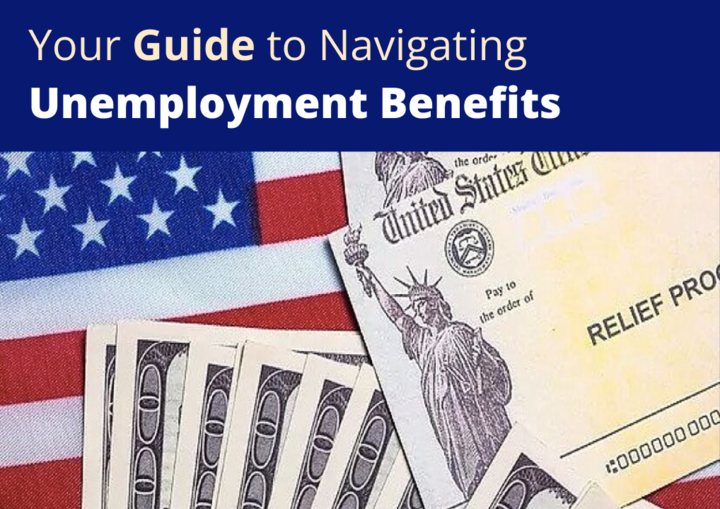Loan scams come in various forms, each designed to exploit the vulnerabilities of unsuspecting borrowers. One prevalent type is the advance-fee loan scam, where a lender promises a loan but requires an upfront payment for processing fees, insurance, or other costs. Once the fee is paid, the scammer disappears, leaving the victim without the promised funds.
This type of scam often preys on individuals with poor credit histories who are desperate for financial assistance, making them more susceptible to offers that seem too good to be true. Another common scam is the phishing scheme, where fraudsters impersonate legitimate lenders through emails or phone calls. They may use official-looking websites or documents to gain the trust of potential victims.
These scammers often request sensitive personal information, such as Social Security numbers or bank account details, under the guise of processing a loan application. Once they have this information, they can commit identity theft or drain victims’ bank accounts. Understanding these different types of scams is crucial for borrowers to protect themselves from falling prey to fraudulent schemes.
Key Takeaways
- Loan scams come in various forms, including advance fee scams, loan flipping, and phantom help scams.
- Always research and verify the legitimacy of a lender by checking their credentials and reading reviews from other borrowers.
- Be cautious of unsolicited loan offers, especially if they come with high-pressure sales tactics or unrealistic promises.
- Avoid lenders who ask for upfront fees before providing the loan, as this is a common red flag for scams.
- Carefully read and understand the fine print of any loan agreement to avoid hidden fees or unfavorable terms.
Researching and Verifying the Lender
Verifying Lender Credentials
Start by checking if the lender is registered with the appropriate regulatory bodies. In the United States, for instance, lenders must be licensed in each state where they operate. Websites like the Nationwide Multistate Licensing System (NMLS) can provide information on whether a lender is properly licensed and in good standing.
Evaluating Online Reviews and Testimonials
Additionally, reputable lenders will often have a physical address and a customer service number that can be verified. Online reviews and testimonials can also provide insight into a lender’s reputation. However, it is important to approach these reviews with caution, as some may be fabricated or manipulated. Look for patterns in feedback across multiple platforms, such as the Better Business Bureau (BBB) or Trustpilot.
Gathering Insights from Current or Former Clients
A lender with numerous complaints or negative reviews should raise a red flag. Engaging with current or former clients through forums or social media can also yield valuable information about their experiences, helping potential borrowers make informed decisions.
Being Wary of Unsolicited Loan Offers
Unsolicited loan offers are often a significant warning sign of potential scams. If you receive an unexpected email, phone call, or text message offering a loan, it is crucial to approach it with skepticism. Legitimate lenders typically do not reach out to individuals who have not expressed interest in their services.
Scammers often use aggressive marketing tactics to lure in victims, promising quick approvals and low-interest rates that seem too good to be true. Moreover, unsolicited offers may come with pressure tactics, urging recipients to act quickly to secure their loan before the opportunity disappears. This sense of urgency is a common strategy used by scammers to prevent potential victims from taking the time to research or think critically about the offer.
If you find yourself in this situation, it is advisable to refrain from providing any personal information and instead conduct independent research on the lender before proceeding.
Avoiding Upfront Fees
One of the most significant indicators of a loan scam is the requirement for upfront fees. Legitimate lenders typically do not ask for payment before disbursing funds; instead, fees are usually deducted from the loan amount after approval. Scammers often request these fees under various pretenses, such as application processing costs or insurance premiums, but once paid, they rarely deliver on their promises.
To protect yourself from falling victim to such schemes, it is essential to ask questions about any fees associated with the loan process. Request a detailed breakdown of all costs involved and ensure that you receive this information in writing. If a lender insists on upfront payments or becomes evasive when questioned about fees, it is a strong indication that they may not be operating legitimately.
Always remember that if it feels wrong or seems too good to be true, it probably is.
Reading the Fine Print
The fine print in loan agreements often contains critical information that can significantly impact borrowers’ financial obligations.
Many individuals overlook this section, focusing instead on the more prominent terms and conditions.
However, hidden within this text may be details about interest rates, repayment terms, and potential penalties for late payments that could lead to financial strain down the line.
It is vital to scrutinize every aspect of the loan agreement before signing anything. Pay close attention to variable interest rates that may increase over time and any clauses that allow lenders to change terms without notice. Additionally, look for prepayment penalties that could hinder your ability to pay off the loan early without incurring extra costs.
Taking the time to read and understand the fine print can help borrowers avoid unpleasant surprises and ensure they are fully aware of their financial commitments.
Checking for Red Flags
Transparency of Loan Terms and Conditions
One major warning sign is a lack of transparency regarding loan terms and conditions. If a lender is unwilling to provide clear information about interest rates, repayment schedules, or fees associated with the loan, it should raise concerns about their legitimacy. Reputable lenders are typically forthcoming with this information and will encourage potential borrowers to ask questions.
Communication Practices
Another red flag is poor communication practices. If a lender uses unprofessional language in correspondence or has an unresponsive customer service team, it may indicate a lack of credibility.
Pressure Tactics and Decision-Making
Additionally, be cautious of lenders who pressure you into making quick decisions or discourage you from seeking advice from trusted financial advisors or family members. A legitimate lender will respect your need for time and will provide you with all necessary information to make an informed choice.
Seeking Legal Advice
When in doubt about a loan offer or if you suspect you have encountered a scam, seeking legal advice can be a prudent step. Legal professionals who specialize in consumer finance can provide valuable insights into your rights as a borrower and help you navigate complex loan agreements. They can also assist in identifying any potentially predatory lending practices that may not be immediately apparent.
Consulting with an attorney can also be beneficial if you have already fallen victim to a loan scam. They can guide you through the process of recovering lost funds and advise you on how to protect yourself from future scams. Many legal aid organizations offer free consultations for individuals facing financial difficulties, making it accessible for those who may not have the means to hire private counsel.
Reporting Suspected Loan Scams
Reporting suspected loan scams is crucial not only for your protection but also for preventing others from becoming victims. In the United States, individuals can report fraudulent lenders to various agencies such as the Federal Trade Commission (FTC) and the Consumer Financial Protection Bureau (CFPB). These organizations collect data on scams and work to enforce consumer protection laws.
Additionally, state regulatory agencies often oversee lending practices and can take action against unlicensed lenders operating within their jurisdictions. Reporting scams helps authorities track patterns of fraudulent behavior and can lead to investigations that hold scammers accountable for their actions. By taking this step, victims contribute to broader efforts aimed at combating financial fraud and protecting vulnerable consumers from similar experiences in the future.
FAQs
What are common signs of a loan scam?
Some common signs of a loan scam include requests for upfront fees, guaranteed approval regardless of credit history, and pressure to act quickly without providing all the necessary information.
How can I verify the legitimacy of a lender?
You can verify the legitimacy of a lender by checking if they are registered with the appropriate regulatory authorities, researching their reputation online, and confirming their physical address and contact information.
What should I do if I suspect a loan scam?
If you suspect a loan scam, you should report it to the appropriate authorities such as the Consumer Financial Protection Bureau, the Federal Trade Commission, or your state’s attorney general’s office. You should also cease all communication with the suspected scammer.
What are some red flags to look out for when considering a loan offer?
Some red flags to look out for when considering a loan offer include requests for payment upfront, promises of guaranteed approval, and pressure to act quickly without providing all the necessary information.
How can I protect myself from falling victim to a loan scam?
You can protect yourself from falling victim to a loan scam by thoroughly researching any potential lender, being cautious of requests for upfront fees, and seeking advice from a trusted financial advisor or attorney before entering into any loan agreement.







